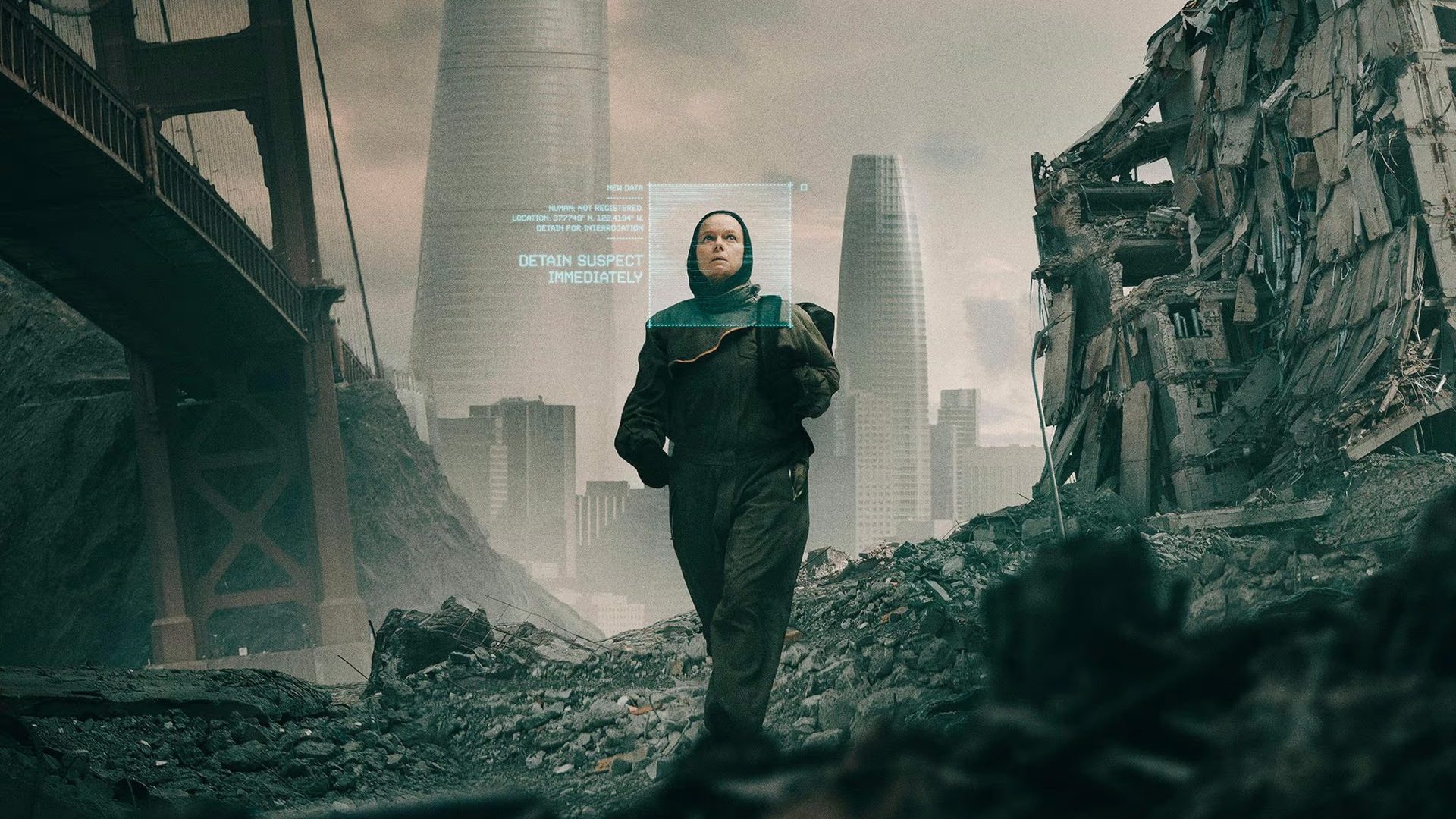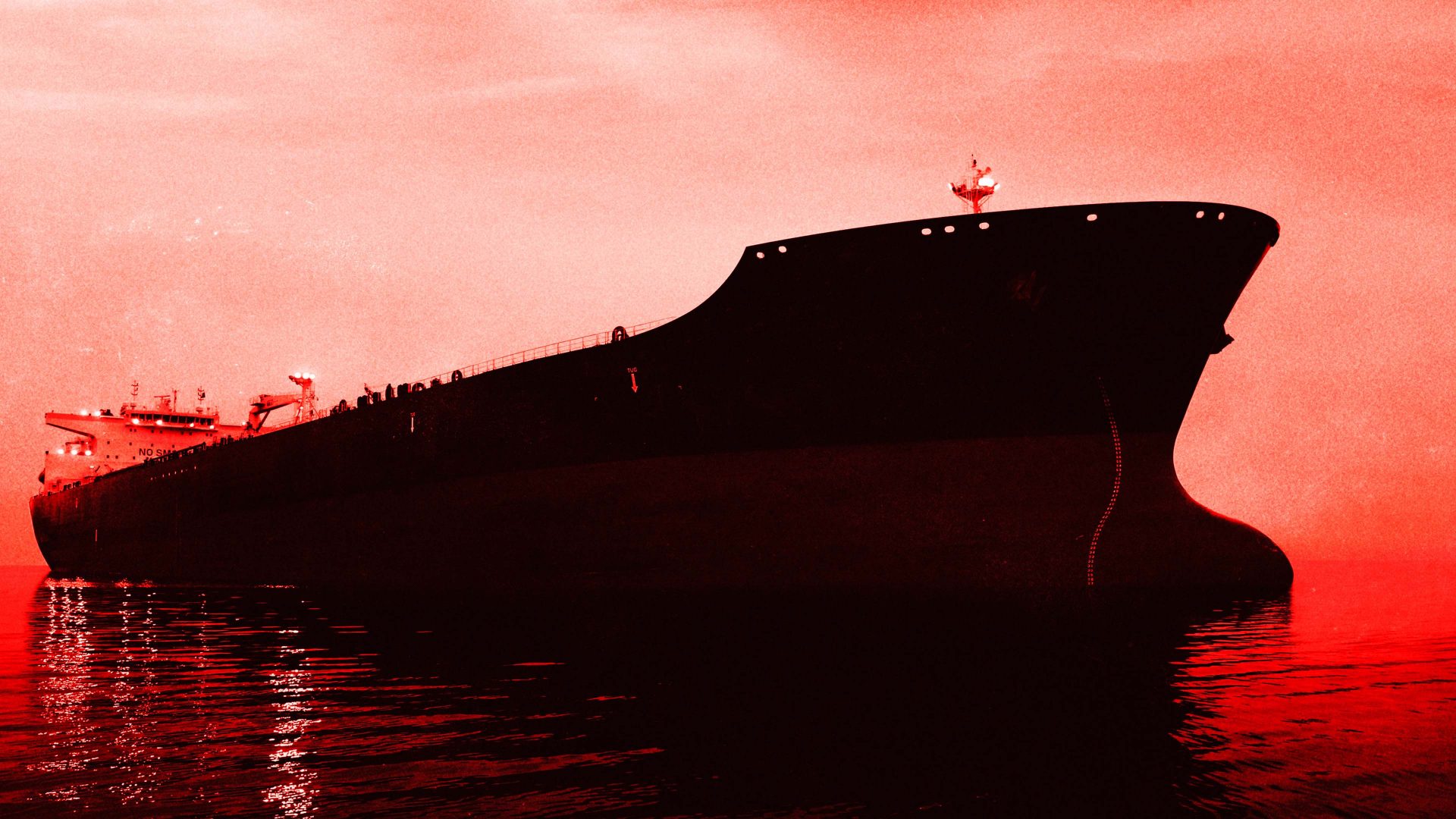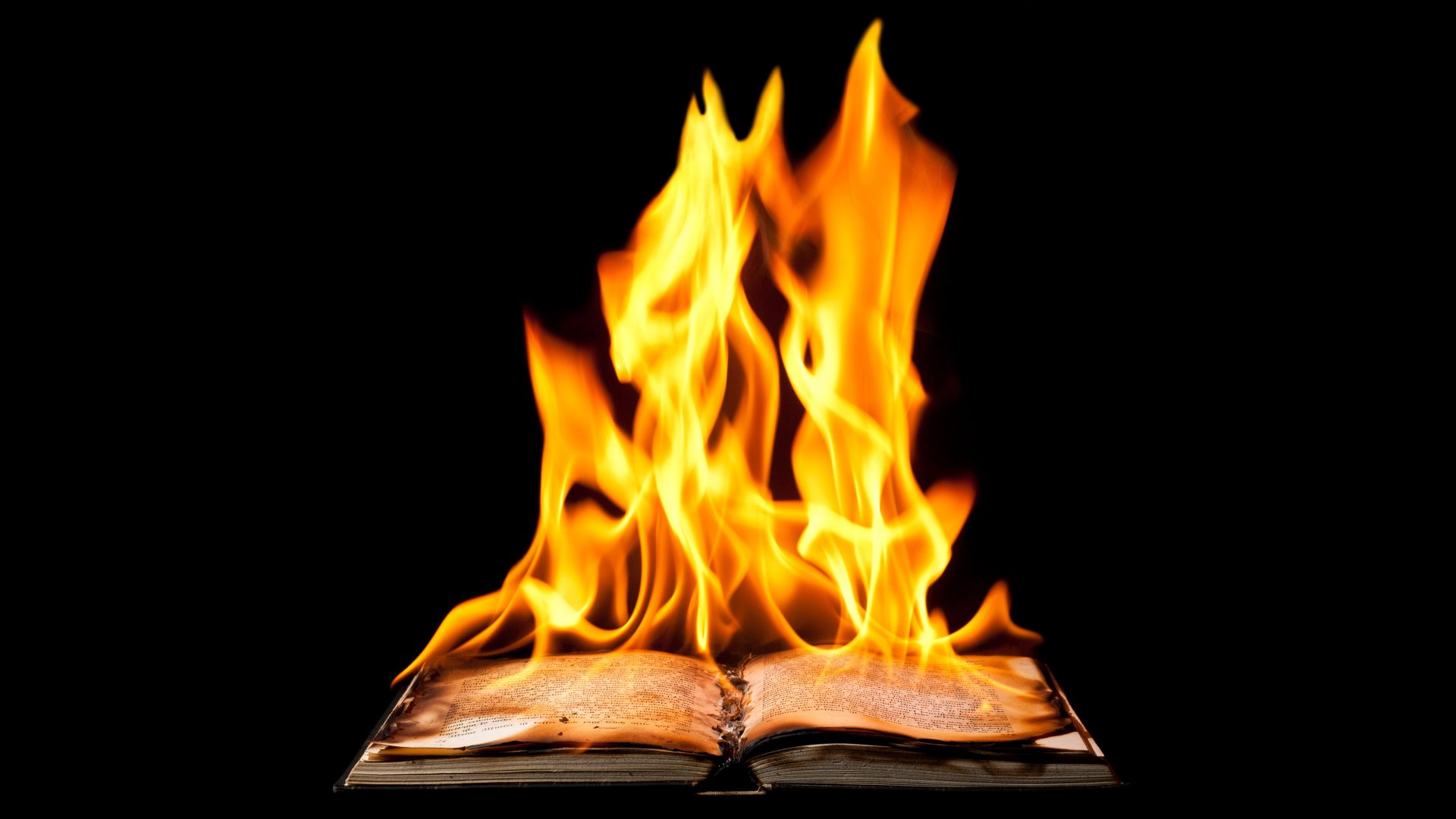The clock ticks, the world spins and another year on the calendar flicks into view. We’re in 2025 now and suddenly, 2073 doesn’t feel all that far off.
I’m talking to Oscar-winning documentary-maker Asif Kapadia (Senna, Amy, Diego Maradona) about his latest film and why he set it (and named it) 48 years from now.
“It’s not really very far away from where we are – I think it will look like now but feel very different,” he says. “You and I mightn’t be around, but our kids and grandkids will be and this will be their world. Well, actually, this is our world now.”
If you’re looking for a doom-laden start to the year, you just have to peer under the rock that Kapadia lifts with this dystopian, hard-to-categorise, sci-fi factual docu-drama. It will hit you like a slap around the chops.
Most of 2073 is archive clips and footage, but Kapadia has a way of putting it all together so it makes sense and you suddenly see what’s been staring at you these last few years. Or rather what you’ve been staring at without knowing it.
“Everything’s from news or phones or internet, and everything is real archive,” he says. “I wish I hadn’t seen half the stuff I’ve looked at. The world’s an awful place.”
So, what is 2073? Kapadia looks at the rise of the authoritarian, populist, some might say fascist, strongman leaders to have risen to power around the world over the last 10 years. The figures that flash up here include Farage, Trump, Duarte, Bolsonaro, Modi, Orbán, Netanyahu, Bezos, Zuckerberg, Musk. They’re accompanied by images of floods, disasters, riots, headlines, wars, famine, images of today’s news cycle and power plays, police beatings and military might.
Various voices and experts fill the screen, including journalists such as Carole Cadwalladr, Maria Ressa from the Philippines, and Rana Ayyub from India.
On top of all that there’s another layer, one of science fiction. This is the bit that’s set in 2073; a dystopian society in a place called New San Francisco, where a character called Ghost, played by Samantha Morton, scuttles around a disused shopping mall, scrabbling for light and food, hiding from drones and recording some sort of video diary.
This part has been written by Tony Grisoni (screenwriter on several Terry Gilliam films) and I guess it’s there to show us where our current situation will eventually lead us. These inserts, of Samantha in close-up and whispering some sort of narration, do at least break up the barrage of bad news.
Does it work as a blend of wake-up call and warning, of science fiction and doom-laden documentary? Not always, not really, to be honest, but then it’s something of an experiment, this movie, finding an uncomfortable format to find a way to deliver uncomfortable truths.
“I broke one of my own golden rules here,” admits Asif. “I never have talking heads in my documentaries but I just felt that the people I’d talked to, mainly women journalists who were holding this strongman power to account, were so impressive and so inspiring that I wanted to show them and show their fight against constant attack, constant threat of being jailed, sued, discredited, abused online, dismissed. It’s easy to do what most of us do, which is sit back and let all this upheaval happen – but these amazing, determined women won’t let it pass.”
What, then, is going on with all this turmoil? “Well, it started,” he says, “with Brexit.”
Kapadia’s film is probably a reflection of all our thoughts. All our worst ones, at that. He admits he started out trying to make sense of a feeling, of a fear, that something was going on beyond our control, beyond our comprehension, but that somehow, somewhere, we were being taken for a ride and manipulated. “In 2016, I started seeing Nigel Farage on Question Time during the Brexit referendum debate and I noticed our media companies and new organisations letting him talk, letting him on, saying it was good for balance, good for both sides, good for entertainment,” he says. “But really they were letting lies go unchallenged, lies and explicit racism about boats and immigration, and I felt something was broken.”
Then working on David Fincher’s Mindhunter series in Pittsburgh, he says he noticed that Farage was somehow the “warm-up act” for Trump in America in 2016, using the same rhetoric and divisions that had prevailed in Brexit.
Kapadia started noting all his observations down and dragging clips to a folder on his computer. For the man who made films about maverick individuals in Senna, Amy and Diego Maradona, there was a sense of a collective unease, that this, whatever it was, was happening to all of us.
He tracked down journalists and experts – “I still believe in experts,” he says – to see if there was a story, a common theme in what they were experiencing in all these different countries around the world at the same time. “And what they all said to me was what was different now, what the common thread now was: tech.”
So tech fills the screen a lot in 2073. Tweets, posts, comments, screenshots of WhatsApp messages. Says Kapadia: “We know how Facebook played a part in Brexit and we know that even in illiterate countries and communities, people have WhatsApp and you can spread misinformation, like saying Muslims are doing such and such to children, and that pretty soon after that you will have lynchings in the street.”
And as the self-styled dictators rose and imposed their rule with heavy policing and draconian legislation, he began to wonder if they weren’t all on some sort of autocrat WhatsApp group together. Did he find it, then, the smoking gun, the secret group of alpha bro moguls and billionaires?
“No, I didn’t,” he says glumly. “I don’t know how it’s all joined up but certainly my editor Chris King said it was staring at him in the face, that the world was split between these ‘bros’ and the intrepid women journalists who were risking everything to call these people out, to risk being called ‘Cat Ladies’ by these bullies.”
I tell him that his film is of course unsettling. As he did with his more famous subjects, he takes what is already known, already filmed, and presents it in a new light, new context. Here, although you’ve perhaps seen some of the footage before, you’ve probably never joined it all up to make some sort of sense of it.
“The tech wave is coming for us all,” he says. “I’m not optimistic about it at all. They’ve got all our data, we’ve just given it all away, willingly. Our children are even worse, with their apps and Snapchat and all they’ve signed up to. So, like with Covid originally being a far-off thing in China, pretty soon, it’s coming, and then it’s in Italy and then it’s upon you and you can’t ignore it and it’s gripping the world. The tech has already got us all.”
I’ve known Asif for many years, before even his first feature film The Warrior won a host of debut awards in 2001. And I’ve interviewed him many times, in print and on air. We are friends. But recently, it’s become trickier.
His social media posts about Israel and Gaza have been justifiably outraged and angry, but some retweets also strayed into dismayingly antisemitic territory. Kapadia deleted them, made a public statement and apologised.
I was trepidatious, to be honest, expecting a lot more of this conflict to be in 2073, but there seems to have been some restraint exercised in the final version, even if Netanyahu features heavily among the villains’ gallery.
“I was aware that this might be the last film I ever made, that it would never get financed,” he says. “I don’t have happy endings, I’m not optimistic and I don’t feel upbeat about what’s happening. If that’s what the film industry wants from me: tough.”
I remark that the last couple of times we’ve met, he’s seemed on edge and looked haunted. I think he’s gone down rabbit holes. Even his tweets about football have gone off-piste. (although his team Liverpool are now flying again and his mood seems to have lifted commensurately with their rise…)
“Tell me, do you think I’ve gone mad?” he asks.
Yes, a bit. I had to say it. This isn’t his best film and nobody really knows what to make of it. I know it’s been a bit of a struggle to get it made and completed and considered, and probably rejected for any awards.
“Film-making drives you crazy, it’s true,” he says. “And I’ve seen some awful shit making this, like a moderator on Facebook who just has to scroll through the worst of our humanity. I wish I could unsee it.
“The worst thing is I felt I was becoming immune to it. So at least if you think I’ve gone mad it means it’s still affecting me, I’m still able to actually feel something.”
We’re speaking just before the Christmas break and I do sense some levity, some relief in him today compared to the wired, tired, ranting man I’d bumped into a few weeks before, for whom the film industry, the football media, the healthcare business, UK politics, it was all conspiring against him and betraying him and us. If I’d seen him with a sandwich board and loud hailer at Oxford Circus a week later, I wouldn’t have been surprised.
“Look, I’ve been on a journey with this film and I’m glad I took it but I will admit I’m also very happy to be walking away from it now,” Kapadia says, conceding that it has perhaps been an “unhealthy space” for him.
He tries to contextualise it, saying he’s at the stage of his career now where, as with the directors he most admires, the body of work becomes important, not the single film, and that 2073 will stand as a time capsule eventually. That he’s marked a period in history with a 90-minute movie about what he’s witnessed, one that he hopes can be studied in the way that Amy is now on the syllabus of A-level media studies.
He also reasons: “My films have been about individuals taking on a system: Amy took on the paparazzi or the entertainment business and with her, there was a before-fame and after-fame trajectory; Senna fought the F1 establishment and drove headlong to his end; and Maradona battled the power of the industrial north of Italy and went round and round like a football, a never-ending circle of highs and lows and repeat patterns.
“This one,” he sighs, “this film just felt like a downward spiral, a hopeless fight for all of us against a system we don’t even know is in place, that none of us can stop, even these brave female reporters, who get told they’re crazy, too. But we’re not crazy. We know the facts and we know what we’ve seen.”
I can feel his mood lighten a little as we draw to a close. There. We’ve said it. He wobbled. And his movie’s made, it’s out there, angry and impotent and foaming and soon Trump will be president again.
Happy New Year – let’s just hope we’ve got a few more left in us until 2073…
2073 is in UK cinemas now




